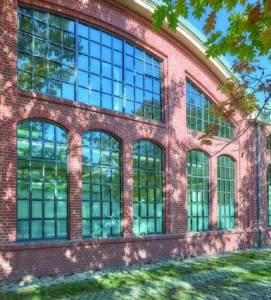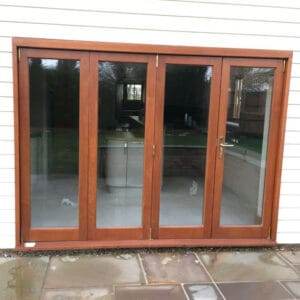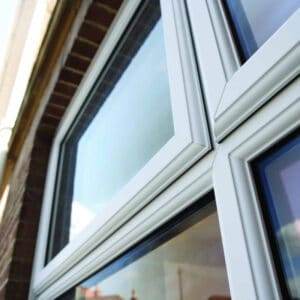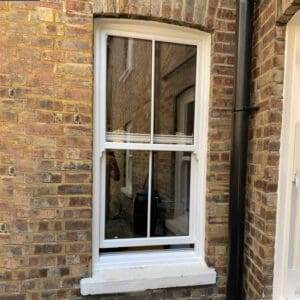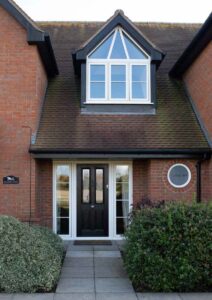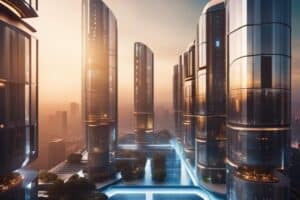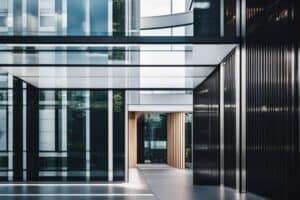Hitherto, the debate between traditional window materials and aluminium has been continued. In this blog post, we will delve into the key advantages of aluminium windows over traditional materials such as wood and vinyl. Aluminium windows are known for their durability, strength, and low maintenance qualities, making them a popular choice among homeowners and architects. Unlike traditional materials, aluminium windows are resistant to corrosion, warping, and rusting, making them a long-lasting investment for any property. Additionally, aluminium windows offer slimmer sightlines and a modern aesthetic, providing a sleek and stylish appearance to any building.
For further comparison, you can visit Vinyl vs. Aluminum Windows: What’s the Best Choice to gain a comprehensive understanding of the differences between these two materials.
Key Takeaways:
- Durability: Aluminum windows are extremely durable and have a longer lifespan compared to traditional materials.
- Low Maintenance: They require minimal maintenance and are resistant to rust, corrosion, and warping.
- Energy Efficiency: Aluminum windows provide excellent thermal performance, helping to reduce energy costs and promote sustainability.
- Design Flexibility: They offer a wide range of design options, allowing for customisation to suit various architectural styles.
- Environmental Benefits: Aluminium is a fully sustainable material and can be recycled indefinitely, making it an eco-friendly choice for windows.
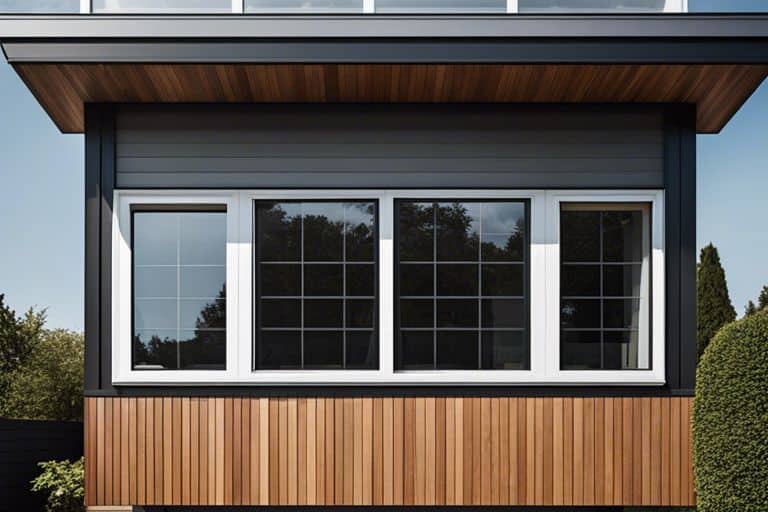
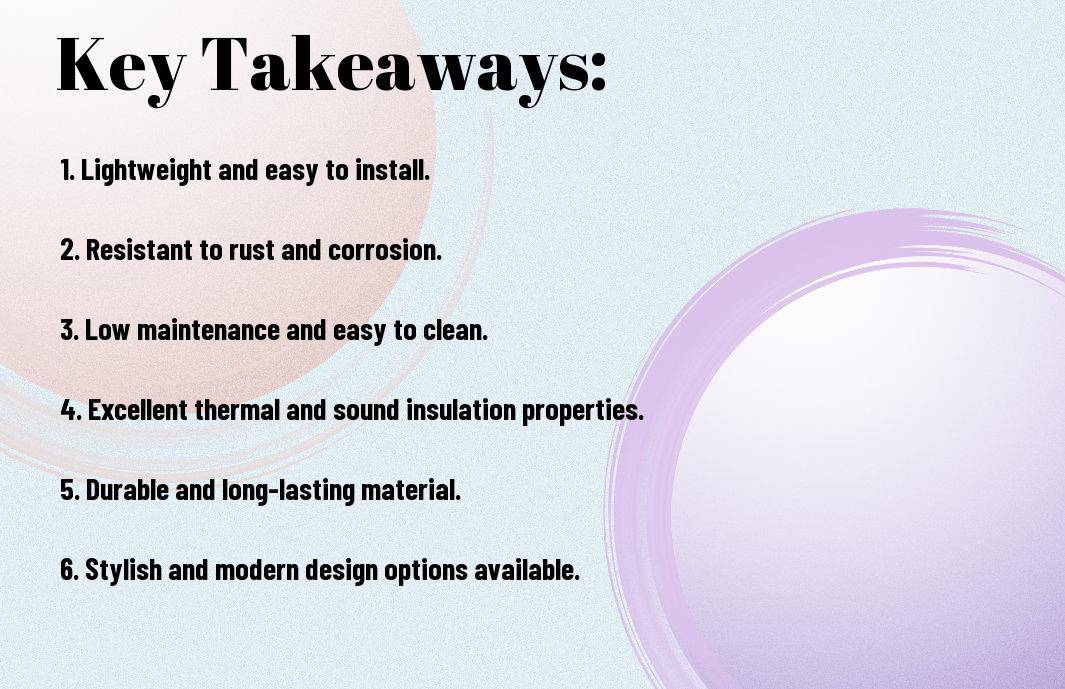
Durability and Maintenance
When it comes to durability, aluminum windows and doors have a significant advantage over traditional materials such as wood and uPVC. Aluminium is a highly durable material that is resistant to corrosion, warping, and cracking, making it an excellent choice for windows and doors in both residential and commercial properties.
Comparison of Lifespan between Aluminum and Traditional Materials
The lifespan of aluminium windows far exceeds that of traditional materials. A study comparing the durability of aluminium, wood, and uPVC windows showed that aluminium windows can last up to 50 years, while wood and uPVC windows typically last around 20-30 years. This longer lifespan makes aluminium a cost-effective and sustainable choice for window and door installations.
| Material | Lifespan |
|---|---|
| Aluminium | 50 years |
| Wood | 20-30 years |
| uPVC | 20-30 years |
Maintenance Requirements for Aluminium Windows
One of the key advantages of aluminium windows is their low maintenance requirements. Unlike wood, aluminium does not require regular painting, staining, or sealing to maintain its appearance and performance. A simple routine cleaning with soapy water and a soft cloth is all that is needed to keep aluminium windows looking their best.
Aluminium windows are also resistant to rot, rust, and corrosion, further reducing the need for ongoing maintenance. This makes them an ideal choice for homeowners and property managers who want high-performance, low-maintenance windows that will stand the test of time.
Thermal Performance and Energy Efficiency
Insulation Properties of Aluminum Windows
When it comes to thermal performance and energy efficiency, aluminum windows have often been criticised for their poor insulation properties. Aluminium is a highly conductive material, meaning it can easily transfer heat and cold. However, advancements in technology and manufacturing processes have led to the development of thermally improved aluminium frames that provide better insulation than traditional aluminium windows. These frames are designed with a thermal break, which helps to reduce heat loss and improve energy efficiency.
Furthermore, the use of low-emissivity (Low-E) glass in aluminium windows enhances their insulation properties by reflecting heat back into the room during winter and reducing solar heat gain during summer. This results in improved thermal performance and energy efficiency, making aluminium windows a viable option for modern sustainable buildings.
Impact on Energy Costs and Consumption
Despite their initial reputation for poor insulation, the improvements in insulation properties have had a positive impact on the energy costs and consumption associated with aluminium windows. By reducing heat loss and solar heat gain, these windows contribute to lower heating and cooling bills for homeowners and businesses. Additionally, the enhanced energy efficiency of aluminium windows reduces overall energy consumption, resulting in a decreased environmental footprint.
It is important to consider the long-term financial and environmental benefits of aluminium windows when evaluating their impact on energy costs and consumption. While the initial investment may be higher, the potential for long-term savings and sustainability make aluminum windows an attractive option for environmentally conscious individuals and organisations.
Aesthetics and Design Flexibility
When it comes to the appearance of windows, aluminium offers a wide range of design possibilities. Its strength allows for slimmer frames and larger glass panes compared to traditional materials, providing a sleek and modern look. The versatility of aluminium also means that it can be easily shaped into various profiles, allowing for unique and customised window designs.
Variety of Styles and Finishes
Aluminium windows come in an extensive range of styles and finishes, offering endless options for customisation to suit different architectural and design preferences. Whether you prefer a minimalist, contemporary look or a more traditional aesthetic, aluminium windows can be powder-coated in various colours and textures to complement any building style.
Adaptability to Modern and Traditional Architectures
One of the key advantages of aluminium windows lies in their ability to complement both modern and traditional architectural styles. With the option to create slimline frames for a modern appearance or replicate the look of period windows, aluminium windows can seamlessly fit into diverse building designs.
Furthermore, the strength and durability of aluminium make it an ideal choice for contemporary architectural designs, where large expanses of glass and minimal framing are desired.
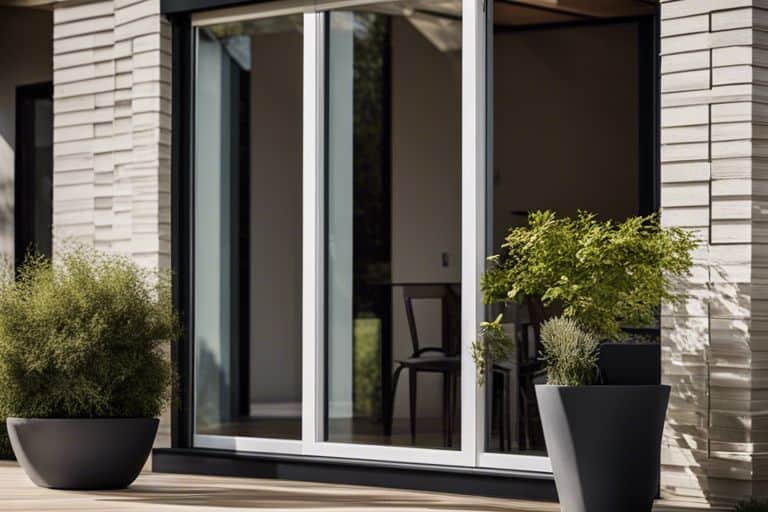
Environmental Considerations
When it comes to choosing the right material for windows, it’s important to consider the environmental impact. Aluminum windows offer several advantages over traditional materials in terms of sustainability and eco-friendliness.
Aluminum’s Sustainability and Recyclability
Aluminum is a highly sustainable material due to its abundance and recyclability. It is the most abundant metal in the Earth’s crust, making it an easily accessible resource. Additionally, aluminum is 100% recyclable without any loss of quality, and the recycling process requires only 5% of the energy needed to produce new aluminum. This makes aluminum windows a highly sustainable choice for eco-conscious homeowners.
The Carbon Footprint of Aluminum vs. Traditional Materials
Aluminum has a lower carbon footprint compared to traditional materials such as wood and uPVC. The production of aluminum windows emits significantly less CO2 compared to other materials, and the energy efficiency of aluminum windows helps reduce overall carbon emissions in the long run. This means that choosing aluminum windows over traditional materials can help lower the overall carbon footprint of a building.
Choosing aluminum for windows is not only environmentally friendly but also financially beneficial in the long term due to its energy-efficient properties. The recyclability and low carbon footprint of aluminum make it a standout choice for anyone looking to make sustainable choices for their home.
Cost-Effectiveness
When considering the advantages of aluminium windows over traditional materials, cost-effectiveness is a key factor to take into account.
Initial Investment and Long-Term Savings
While the initial investment in aluminium windows may be higher than traditional materials such as wood or uPVC, the long-term savings they offer cannot be overlooked. Aluminium windows are highly durable and require minimal maintenance, resulting in reduced long-term costs for homeowners. Additionally, their excellent thermal performance can lead to significant energy savings over the lifetime of the windows, further adding to their cost-effectiveness.
Comparing Total Ownership Costs
Comparing the total ownership costs of aluminium windows with traditional materials reveals their cost-effectiveness. Aluminium windows have a longer lifespan and require less maintenance, resulting in lower maintenance and replacement costs over time. This, coupled with their energy efficiency, makes them a cost-effective choice for homeowners.
When comparing the total ownership costs of different window materials, it becomes clear that aluminium windows offer long-term cost savings and durability, making them a wise investment for any property.
The Advantages of Aluminum Windows Over Traditional Materials
In conclusion, it is evident that aluminum windows offer significant advantages over traditional materials such as wood and steel. The durability, strength, and low maintenance of aluminum make it a superior choice for window frames, especially in harsh climates. In addition, aluminum windows offer excellent thermal performance and can contribute to energy efficiency in buildings. Furthermore, the versatility of aluminium allows for sleek and modern designs that can enhance the aesthetic appeal of any property. While there are other options such as vinyl windows to consider, it is clear that aluminum has numerous benefits that make it a top choice for window construction. For more detailed information about the benefits of vinyl windows and aluminum windows, please visit The Benefits of Vinyl Windows and Aluminum Windows.
FAQ
Q: What are the advantages of aluminum windows over traditional materials?
A: Aluminum windows are highly durable, low maintenance, and provide excellent thermal and sound insulation. They are also resistant to corrosion and can be easily recycled.
Q: Are aluminum windows more expensive than traditional materials?
A: While the initial cost of aluminum windows may be higher, they offer long-term cost savings due to their durability, energy efficiency, and low maintenance requirements.
Q: How do aluminum windows compare to uPVC windows?
A: Aluminum windows are stronger and more durable than uPVC windows. They also offer sleeker sightlines and can be powder coated in a variety of colours for a custom look.
Q: Do aluminum windows require a lot of maintenance?
A: Aluminum windows require minimal maintenance and can be easily cleaned with a mild detergent and water. They are also resistant to rust and corrosion, making them ideal for coastal areas.
Q: Are aluminum windows environmentally friendly?
A: Yes, aluminum windows are highly sustainable and can be recycled at the end of their lifespan. They are also energy efficient, helping to reduce carbon emissions and lower overall energy consumption.

